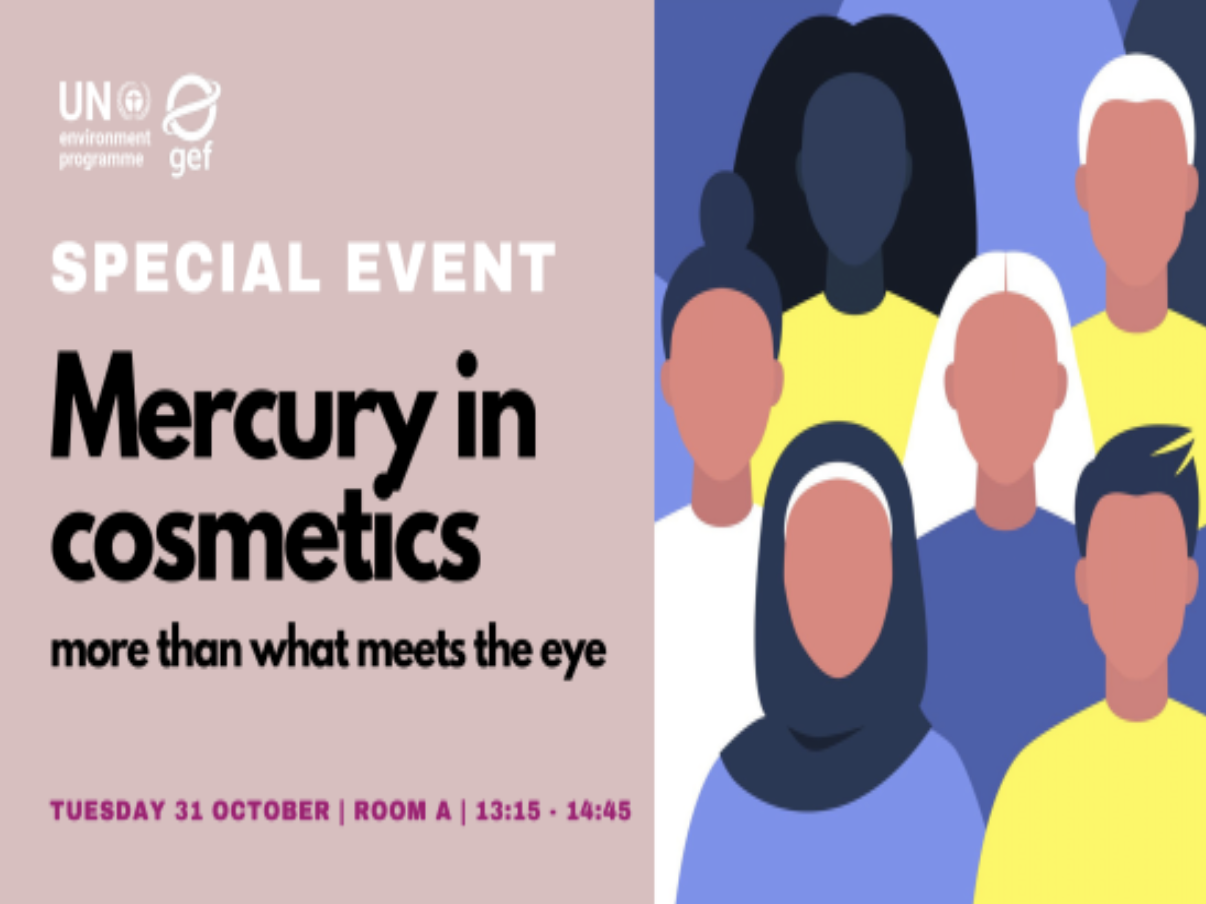Mercury in cosmetics – more than what meets the eye

13:15 - 14:45 CET, Geneva, Switzerland. Using cosmetics to inhibit the body’s production of melanin, leading the skin to appear lighter, is a centuries-old practice that continues in many parts of the world today.
People of all genders use skin lightening products (SLPs) to fade freckles, blemishes, age spots and treat acne; however, many use these products to intentionally lighten their skin color. Consumers are often unaware that these products contain a host of harmful chemicals including mercury, causing skin rashes and discoloration; scarring; nervous, digestive and immune system damage, as well as anxiety and depression. Pregnant women, babies, and young children are particularly at risk.
Using cosmetics to inhibit the body’s production of melanin, leading the skin to appear lighter, is a centuries-old practice that continues in many parts of the world today. However, consumers are often unaware that these products contain a host of harmful chemicals including mercury, causing skin rashes and discoloration; scarring; nervous, digestive and immune system damage, as well as anxiety and depression.
With the global cosmetics market expanding, growing 14 percent in 2022, and the majority of skin lighting products exceeding the limits set by the Minamata Convention on Mercury, eliminating the use of mercury within skin lightening products (SLPs) is critical to meet the needs of the Convention.
However, without addressing the underlying norms surrounding SLPs – the idealization of whiteness and the concepts association with beauty, wealth and power – products will continue to be targeted towards people of colour, which many suggest holds direct relevance to colonialism, gendered expectations, as well as the media’s preferential treatment of white skin. In short, we cannot address the mercury content alone.
This session, co-organized by the Global Environment Facility and United Nations Environment Programme, seeks to question the promotion and normalization of skin lightening and confront the perpetuation of harmful cultural norms.
Speakers:
- Monika Stankiewicz, Executive Secretary, Minamata Convention on Mercury
- Maria Neira, Director, Public Health and the Environment Department, World Health Organisation
- Amira Adawe, Executive Director, Beauty Well
- Alecia Hamilton Campbell, National Project Coordinator, WHO Jamaica
- Catherine Tetteh, Chief Executive Officer, Melanin Foundation
- Ange Mibindzou Mouelet, Director, Agency of Medicine, Ministry of Health and Social Affairs, Gabon
- Linroy Christian, Director, Ministry of Agriculture, Fisheries and Barbuda Affairs, Antigua and Barbuda
- Kheris Rogers, Flexin’ In My Complexion
- Meera Senthilingam, Editor, CNN